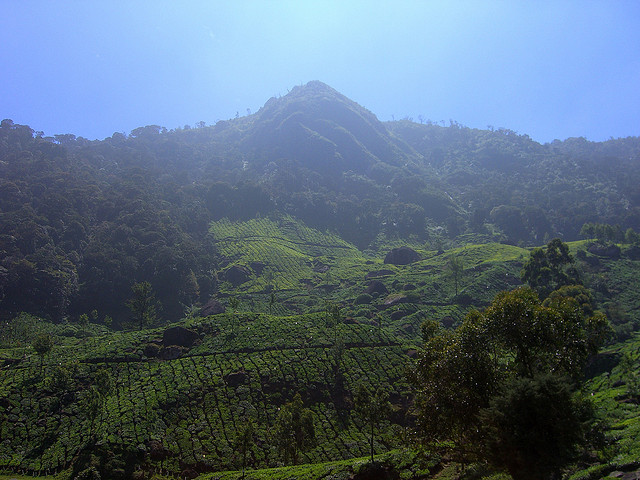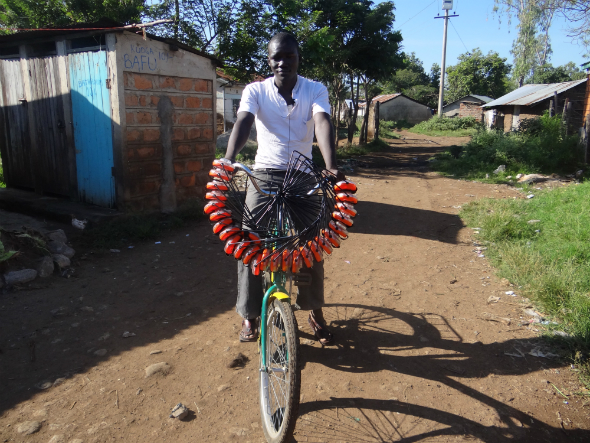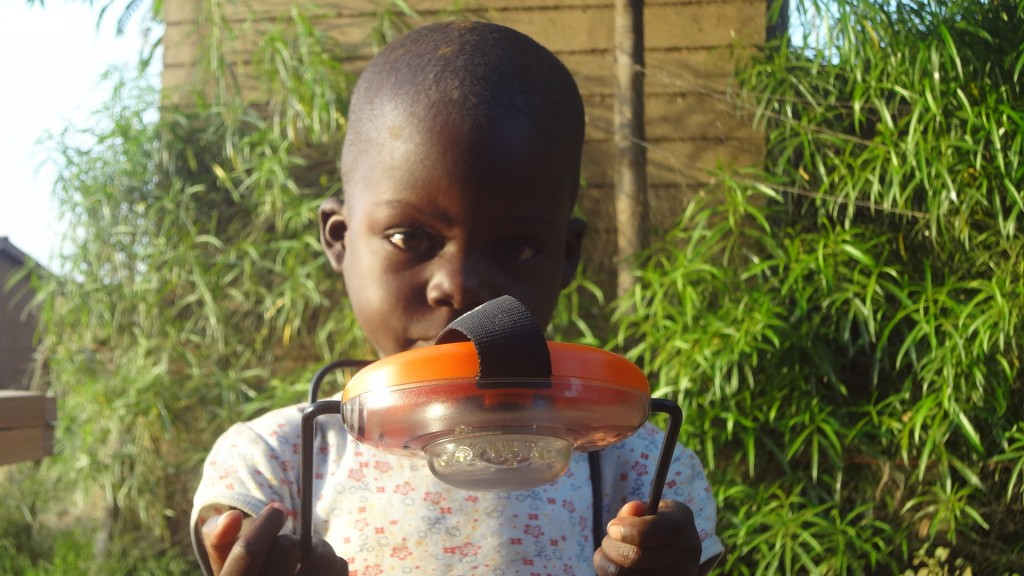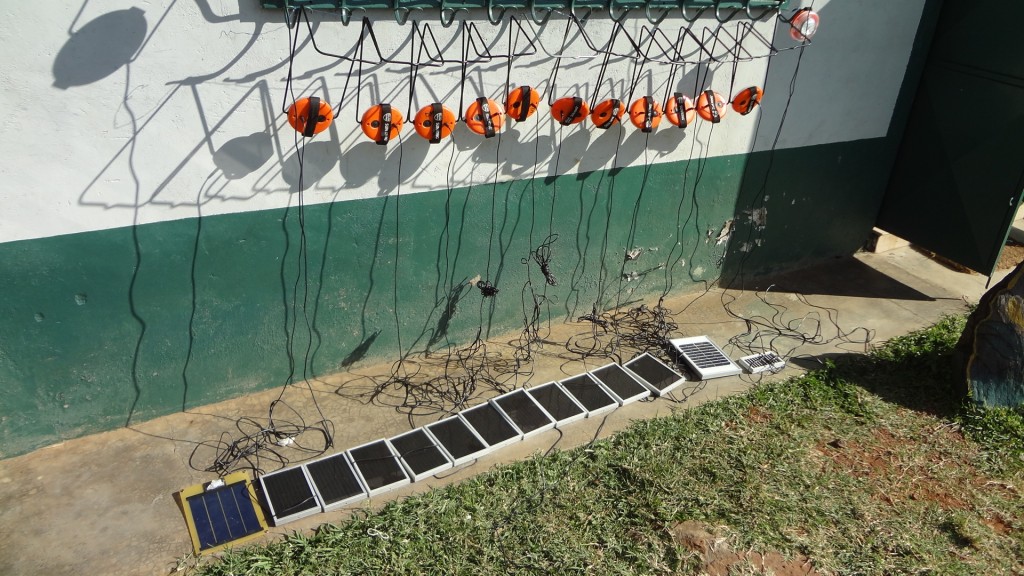Search Results for Tag: green energy
What ranks higher: Biodiversity or need for green energy?

The Western ghats in India are home to 39 Unesco World Heritage Sites (Photo credit: CC BY NC SA: pocketdora)
If you were a politician and forced to choose, in which way would you push your agenda: preserve nature’s diversity by upholding protected areas or to lift the restrictions to allow them to be used for green energy projects – such as solar power or wind farms?
Such decisions are made all over the world. In Sweden for example, there is great potential to expand the use of hydro- or wind-power. At the same time large parts of the country are nature reservoirs and thus protected. But people in Sweden people love there nature and they seem to generally agree that protected areas shouldn’t be given up for the sake of more green energy.
In India the opposite happens: In a region called the “Western ghats“, reaching along almost the whole Western coast of the country. Due to its richness in unique plant- and animal-species it’s also considered a global biodiversity hotspot – one of 35 biodiversity hotspots worldwide. Though, a little over a third (some 60,000 sq km) of that area is designated an “ecologically sensitive area” and thus protected. Well, “protection” here means the following: Companies are not allowed to dig mines, set up thermal power plants or any other polluting industries. But hydro-electric power plants and wind turbines are ok if they conform to strict “green” rules and monitoring, according to a report by the Times of India.
The other 63 percent of the Western Ghats will remain unprotected, designated as “cultural landscape” (including villages, agriculture and non-forest plantations). But biodiversity experts call for caution: just because a region is considered a “cultural” landscape it should not be less worth protecting. Also, in a cultural landscape they consider industrial activity to be a possible threat to nature’s richness. Environmentalists fear desertification of the region may be a problem, too.
As so often it comes down to a hard choice between economic goals and the value of nature: How would you decide?
Renting or buying – A difficult decision!

“Take a gap year and save the planet!” This could be the motto of the Kenyan based organisation “Ecofinder”. Founded in 1995 the Kenyan grass roots organisation helps communities around Lake Victoria to lead a more sustainable life. GLOBAL IDEAS has invited Nicolas, one of Ecofinder’s numerous volunteers, to write about his experience:
As a volunteer one of my main tasks is the so called “green energy promotion”. Here I try to drive the distribution of solar lamps forward. In this field we are running two different projects. The first one is called “Right Light”, it gives users of sooty kerosene lanterns the opportunity to rent a solar lamp over night for a very low price. So they don’t need to buy more expensive, health and environment damaging kerosen. The second project we call “Villageboom.” Here we encourage people to buy solar lamps as an investment in their future.
The major difference both is obvious, a person is either the owner of a solar lamp or the person rents the lamp. Both have advantages and disadvantages. For example: Almost everybody can afford the rent of one solar lamp for one night (about 9 Euro Cent). Another positive aspect is that the person who rents does not bear a risk if the lamp fails and is broken. But by possessing a solar lamp users can save a lot more money, because the sun will charge their lamp for free every day. Unfortunetaly for most of the people without electricity a good solar lamp is still very expensive.
In the long run renting a lamp will be more expensive than buying one. After one year of renting a lamp the rent will equal the value of buying a lamp twice. In conclusion I think installment payments are the best solution for poorest who are looking for a clean and cheap light. Therefore it could be very interesting and succesful to combine both concepts. For example our Solar Lamp Entrepreneurs-SLE could offer to their customers to buy a solar lamp bit by bit and not at once.
I’ll keep you updated how our solar lamp distribution is going on in future. But if you have any idea, suggestion or proposal about this issue feel free to comment and to share your thoughts.
In your opinion: “What is the best way to enable as much people as possible a solar lamp?”
What’s the Ecofinder “SLE-MEETING”?
 If you read my last posts, you may figure out the solution by yourself. “SLE” is an abbreviation for our successful program “Solar Lamp Entrepreneurs.” These entrepreneurs charge their solar lamps every day and rent them out each night. Their customers don’t have access to electricity. They come regularly to rent the lamps and even order them in advance to ensure they get one of the much sought-after gadgets.
If you read my last posts, you may figure out the solution by yourself. “SLE” is an abbreviation for our successful program “Solar Lamp Entrepreneurs.” These entrepreneurs charge their solar lamps every day and rent them out each night. Their customers don’t have access to electricity. They come regularly to rent the lamps and even order them in advance to ensure they get one of the much sought-after gadgets.
The reason for the huge demand is quite simple – the solar lamps are brighter, cheaper and, most importantly, safer than the commonly used kerosene lamps. That allows children to read, learn or do their homework even late in the evening. But the lamps also help their parents since they make it easier to work at night and perhaps earn more money for the family.
At the end of last year, we organized our SLE-Meeting. The aim was to give our SLEs the chance to share their experiences and to get more people involved in the project. Of course, it was also great that our new potential SLEs could learn directly from the more experienced ones. It was very interesting to hear what they had to say, both good and bad. In one worst case, someone’s solar panel had been stolen while charging the lamp. On the other hand, one of our Solar Lamp Entrepreneurs has already employed someone to reach out to more people in other areas. Overall, the meeting was a success. Four new SLEs were added to the solar lamp rental project. Each of them got ten lamps as a loan. That means we distributed 40 lamps and, in addition, some of the more experienced SLEs bought new lamps. So the number of solar lamps in this project increased to 200.
We are proud of this number and want to raise it further in 2013. But personally, I want to focus more on selling the solar lamps directly to customers. That’s because for them, the solar lights bring the most financial benefits if they own the lamps themselves.
More about this issue the next time.
No tough stuff from “Tough Stuff”!
“Take a gap year and save the planet!” This could be the motto of the Kenyan based organisation “Ecofinder”. Founded in 1995 the Kenyan grass roots organisation helps communities around Lake Victoria to lead a more sustainable life. GLOBAL IDEAS has invited Nicolas, one of Ecofinder’s numerous volunteers, to write about his experience:
 What do you need for a succesful small-scale solar lamp business?
What do you need for a succesful small-scale solar lamp business?
There are two important things:
First: Highly motivated and convinced people who know that what they are doing will improve their lives and help to protect the environment. And second: Affordable solar lamps of good quality and longlivety.
Ecofinder started his solar lamp projects with 80 “Tough stuff” lamps. But unfortunately we had problems with faulty lamps after just three months. Our “Solar Lamp Entrepreneurs” could not rent as half as much lamps as before. Their business were in danger.
We changed the lamp trade mark. Our new lamps are from “Sun King”. The lamp’s quality is much better. They more or less rescued the project. It was possible to increase the number of solar lamps. At the moment 140 solar lamps from Ecofinder are used in areas around Kisumu nearby the Lake Victoria and the number is rising.
Because of the problems we had with the old lamps, we started buying lamp kits that have to be assambled. Organizing this is my task at the moment. We want to establish a Solar Lamp Workshop where employees learn to assemble the final lamp.
That would create more positive impacts on the community:
Not only we can offer affordable lamps, we would also offer new jobs for unemployed people. In conclusion it is possible to provide more and more people with solar lamps. Furthermore it would be obvious for everyone that eventually broken lamps could be fixed in the workshop.
I hope that my task, the workshop, will be reality in future.
“Green” Light for Lake Victoria
“Take a gap year and save the planet!” This could be the motto of the Kenyan based organisation “Ecofinder”. Founded in 1995 the Kenyan grass roots organisation helps communities around Lake Victoria to lead a more sustainable life. GLOBAL IDEAS has invited one of Ecofinder’s numerous volunteers to write about his experience:
A lot of people especially in developing countries have no acess to electricity. That’s why most of them use kerosene lamps for at least a little bit light at night. But this is quite dangerous because of the open fire and it’s unhealthy for the people because of the smoke. Therefore Ecofinder started a very interesting project, the “Solar Lamps Rentals”, in March 2012.
The project’s idea and structure is quite simple but very efficient:
After a training about small-scale business and solar lamps, Ecofinder provides a new “Solar Lamps Entrepreneur” with a starter pack of 10 solar lamps. Now he can rent them every night to his local customers and charge them during the daytime. The only condition is that he will pay back 25% of his income to Ecofinder until the lamps are paid off and that the price for the lamps a night is below the local common price for kerosene lamps.
With the earned money Ecofinder is able to spread the solar lamps project and to buy new lamps for new entrepreneurs. One of my first tasks was to put the repayment’s bookkeeping in order and to assign it to an excel-softcopy. After this office work I could visit and meet all our eight “Solar Lamps Entrepreneurs”. I asked them about their running business, problems, wishes and how much solar lamps they would need more to provide the demand of all customers. The response on the last question was clearly. The market for affordable solar lamps is huge. It’s environmental friendly and you can even earn your own money with the rentals. A perfect project combination of ecological and economic aspects.
But you can imagine, it is’nt everyhing perfect from the very beginning. We have also some problems, more information the next time.









Feedback